#Saudi Kingdom's Council
Text
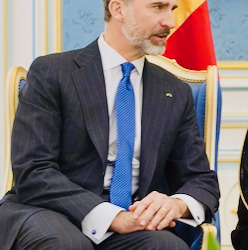
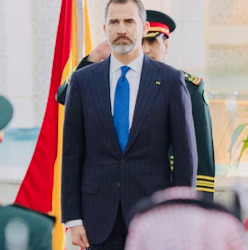
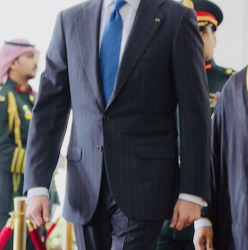
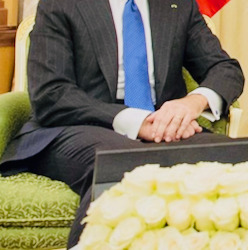
Through the Years → Felipe VI of Spain (1,992/∞)
15 January 2017 | King Felipe Of Spain is welcomed by King of Saudi Arabia, Salman bin Abdulaziz, during an official welcoming ceremony at Al Yamama Palace in Riyadh, Saudi Arabia. (Photo by Bandar Algaloud / Saudi Kingdom's Council / Handout/Anadolu Agency/Getty Images)
#King Felipe VI#Spain#2017#Bandar Algaloud#Saudi Kingdom's Council#Handout#Anadolu Agency#Getty Images#through the years: Felipe
3 notes
·
View notes
Text
Global Britain Hit By Fresh Setback
UK Prime Minister @RishiSunak said: “We know the transformative power of reliable, responsible private investment. It’s the spark that is helping us to build ports in #Senegal & #Somaliland, hydropower projects in #Rwanda, & offshore wind in @India.
Continue reading Untitled
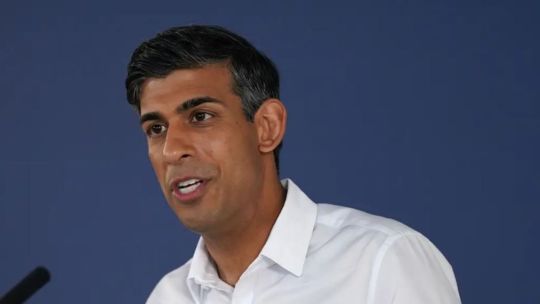
View On WordPress
#Corridor#Europe#European Union (EU)#G20#G20 Summit#Gulf Cooperation Council (GCC)#India#Infrastructure#Investment#Israel#Jordan#Partnership for Global Infrastructure and Investment (PGI)#Rishi Sunak#Saudi Arabia#Senegal#Somaliland#United Arab Emirates (UAE)#United Kingdom (UK)#United States
1 note
·
View note
Text
Excerpt from this story from Truthout:
In March 2022, the United Nations Environment Assembly agreed to begin negotiating a legally binding treaty between 175 countries that will determine how the world deals with such plastic pollution. The fifth and final negotiating session is now set to start in late November this year. Recognizing the scope and severity of the crisis, delegates for the 14 Pacific Island countries have been at the forefront of the international plastic treaty talks, advocating for strict limits on plastic production and the need to set tangible goals for waste management.
Other countries, including Rwanda, Peru and European Union nations, have also pushed for ambitious goals and plastic production caps. But the United States, alongside oil-producing countries like Saudi Arabia, Russia and China, has historically opposed these proposals. The oil and gas industry wants delegates to carve out a treaty that focuses on things like plastic tracking and recycling rather than decreasing production — even though, for decades, plastics companies knew that recycling was an overwhelming failure.
But in August, in what could be a major breakthrough for the future of the planet, President Joe Biden’s administration indicated it would support plastic production limits and increased controls on the toxic chemicals that are used in the plastic production process.
Environmental groups praised the announcement, while industry groups like the American Chemistry Council — which has spent nearly $10 million in lobbying efforts so far this year — lambasted the administration for “caving” to environmentalists’ wishes and “betray[ing] U.S. manufacturing.”
While the Biden administration’s announcement gained little attention in a crowded news cycle, this shift in approach carries urgent importance. Less than 10 percent of plastic waste is currently recycled globally; the rest winds up dumped or incinerated, harming communities and polluting the Earth. If the years of negotiations yield a treaty that focuses on recycling — not production caps — as a solution to the crisis, then the world will be digging itself into an even deeper plastic pollution hole. And it would take a huge amount of additional international coordination to climb back out.
Plastic, which is derived from fossil fuels, is toxic throughout every stage of its life cycle, from production to disposal. The extraction and refinement of fossil fuels for plastic production emits hundreds of millions of metric tons of greenhouse gases each year, heating up the atmosphere and fueling the climate crisis. Research from the Center for International Environmental Law emphasized that the global plastics treaty needs “to incorporate ambitious obligations that specifically target global plastic production” if we are going to keep global warming below the 1.5 degree Celsius threshold.
Plastics also contain a slew of toxic and carcinogenic chemicals, which are released during production at facilities that, in the United States, are often placed in low-income communities and communities of color. In January, a report by Amnesty International found that the Houston Ship Channel — a major hub for fossil fuels in the United States — is a racial “sacrifice zone,” where an immense and disproportionate burden of pollution is placed on people of color by fossil fuel companies. The report noted that the scale of harmful pollution amounts to a human rights violation.
At the end of plastics’ life cycle, wealthy nations, including the United States and the United Kingdom, frequently export their waste to poorer nations in a phenomenon that has been dubbed “waste colonialism.” Often, these countries have fewer resources to manage and tame the vast amounts of trash than the rich countries that are sending it. The term was coined as far back as 1989, when several African nations expressed concerns at the United Nations Environmental Program Basel Convention that wealthy countries were using countries in Africa as dumping grounds for hazardous waste.
21 notes
·
View notes
Note
Hi so I have a question, but how do you write a monarchy, specifically one in a fantasy setting?
Monarchy in a Fantasy Setting
How you research and write a monarchy in a fantasy setting depends on the type of monarchy you want to have:
-- Constitutional Monarchy: the monarch is a ceremonial head of state with limited power, with political power being in the hands of a constitutional government such as a parliament. (Example: the UK)
-- Federal Monarchy: the monarch serves as the collective and mostly ceremonial figurehead of a federation of states, each with their own monarch or government. This is a rare type of monarchy. (Example: Malaysia)
-- Absolute Monarchy: the monarch has absolute political power, giving them the ability to create and amend laws, appoint political leaders, and conduct geopolitical affairs. (Example: Saudi Arabia, England prior to 1215)
-- Mixed Monarchy: combines elements of aristocracy (rule by a small privileged class), monarchy, and democracy. (Example: Liechtenstein)
*** Since the British monarchy is perhaps the most familiar monarchy for most people, it's important to note that it didn't go straight from an absolute monarchy to what they have today. After 1215, when the Magna Carta acknowledged limits to the monarch's powers in England and established a council of feudal lords (which would eventually evolve into parliament), the monarch still held the bulk of power. Between the 1600s and 1800s, parliament evolved into the representational government we have today, with the monarch evolving in parallel to a ceremonial figurehead.
*** It's also important to note that monarchy looks different the world over, and throughout different eras.
Once you've decided on the type of monarchy you want your story to have, you can do research on that specific type of monarchy to learn how it is structured and how they typically work. You can also research specific monarchies of that type, whether modern monarchies or past monarchies, to get examples and inspiration for what you can do with your story's monarchy.
Here are some general posts about writing royals and monarchy, though they are mostly geared toward European monarchy, particularly historical European monarchy. Make sure to research the specific elements to make sure they fit with the type of monarchy you want to portray:
Guide: Writing Fictional Royals
“King” Doesn’t Mean “Husband of the Queen”
Forms of Address for Royals and Nobility
Creating a Fictional Kingdom
•••••••••••••••••••••••••••••••••
I’ve been writing seriously for over 30 years and love to share what I’ve learned. Have a writing question? My inbox is always open!
Learn more about WQA
Visit my Master List of Top Posts
Go to ko-fi.com/wqa to buy me coffee or see my commissions
123 notes
·
View notes
Text
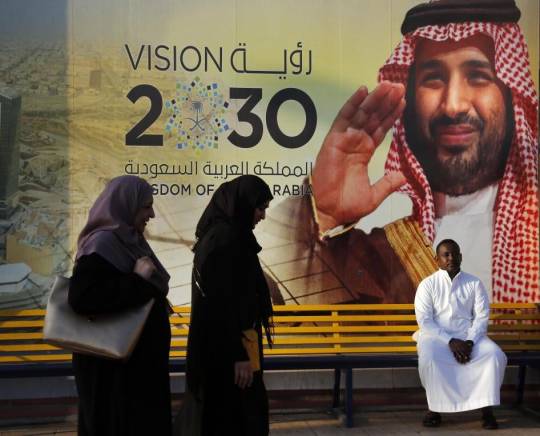
United Nations member countries should abandon an arrangement to elect Saudi Arabia as chair of the UN’s top forum for women’s rights and gender equality. Delegations attending this year’s annual meeting of the UN Commission on the Status of Women (CSW) should oppose the candidacy of Saudi Arabia, which has an egregious women’s rights record, and select a country committed to upholding women’s rights.
Saudi Arabia is the only candidate to chair the next yearlong CSW session, several diplomats told Human Rights Watch. The kingdom is expected to be unanimously confirmed in the post without a vote at the UN’s Economic and Social Council on March 22, the diplomats said. The current chair is the Philippines.
Saudi Arabia systematically discriminates against women and persecutes women’s rights activists. Its own UN mission’s website concedes the government is no leader on women’s rights: “Saudi Arabia is tiptoeing on women progress, but the road is still long to go.”
In response to a query about Saudi Arabia’s qualifications to chair the CSW, the Saudi mission said: “Women empowerment is a collective aim of the international community … that the Kingdom of Saudi Arabia has taken major steps towards, and reforms are still going.” The statement flagged a World Bank press release on Saudi labor reforms benefitting women. (Human Rights Watch)
14 notes
·
View notes
Text
[Arab News is Saudi Media]
In a phone call [with Abbas], the crown prince reiterated that Saudi Arabia, in communication with all international and regional parties, is exerting all efforts to stop the ongoing escalation and prevent its expansion in the region, emphasizing the necessity of adhering to international humanitarian law and not targeting civilians.
He also stressed the Kingdom’s continuous stand by the Palestinian people to achieve their legitimate rights to a decent life, realize their hopes and aspirations, and achieve just and lasting peace, the Saudi Press Agency said Monday.
The White House hasn't given up on the possibility of a Israel-Saudi normalization agreement, though it's no longer a primary focus, according to National Security Council coordinator John Kirby.
9 Oct 23
21 notes
·
View notes
Text
By Palestine Chronicle Staff
Addressing the Shura Council, the Saudi Crown Prince strongly condemned Israel’s crimes against the Palestinian people.
The Saudi Crown Prince Mohammed bin Salman said on Wednesday that his country will not establish diplomatic relations with Israel until an independent Palestinian state with East Jerusalem as its capital is created.
“The kingdom will not stop its tireless work to establish an independent Palestinian state with East Jerusalem as its capital, and we affirm that the Kingdom will not establish diplomatic relations with Israel without that,” Bin Salman said.
Addressing the Shura Council, the Saudi Crown Prince strongly condemned Israel’s crimes against the Palestinian people.
“We reiterate the kingdom’s rejection and strong condemnation of the crimes of the Israeli occupation authorities against the Palestinian people, ignoring international and humanitarian law in a new and bitter chapter of suffering,” the Saudi Crown Prince added.
2 notes
·
View notes
Text
Several EU countries to recognise Palestine amid possible Rafah offensive – Borrell
EU foreign policy chief Josep Borrell told the Saudi capital Riyadh on the sidelines of the World Economic Forum on Monday that several EU members were expected to recognise Palestinian statehood by the end of May.
However, the spokesman later claimed that his remarks were “slightly over-interpreted” and that the recognition was taking place at the level of individual member states, not a decision by the bloc.
This was said in the context of a wider discussion about the two-state solution, the latest vote in the UN Security Council on admitting Palestine, as a member and an upcoming vote on this same issue in the UN General Assembly.
EU members Ireland, Slovenia, Malta, Norway and Spain have already declared their intention to recognise a Palestinian state. Turkey has stressed that recognising Palestine as a contiguous state on the pre-1967 borders is key to ending the bloodshed in the Middle East.
Reacting to a possible Israeli offensive on Rafah, Andrew Mitchell, Minister of State of the United Kingdom for Development and Africa, stated on Tuesday that Israel’s planned ground operation in Rafah might not be “compliant with international humanitarian law.” George Galloway, a lawmaker and leader of the Workers Party of Britain, criticised him and warned that there could be “the worst bloodbath” since World War II.
Read more HERE

#world news#world politics#europe#european news#european union#news#eu politics#eu news#middle east#middle east conflict#middle east news#middle east war#middle east crisis#josep borrell#israel hamas war#israel hamas conflict#israel hamas gaza#israel palestine conflict#israel palestine war#israel politics#israel palestine tensions#israel gaza#all eyes on rafah#rafah#rafah under attack
3 notes
·
View notes
Text
The Iranian state’s radical form of Islam is being challenged by intensifying leftist struggles against religious domination as a force of reaction and an obstacle toward achieving liberatory goals. To counter this, the Iranian state has devoted its immense resources toward shaping and influencing the understandings and positions of western leftists and so-called anti-imperialists in relation to itself. They are able to take advantage of lobbying efforts such as NIAC (National Iranian American Council) to spread their propaganda and influence among leftists and intellectuals in the West. This has allowed to the Iranian state to largely insulate itself from scrutiny and criticisms for its imperialist policies on the international stage. These efforts have been effective to such a degree that when imperialism is spoken of, it’s broadly understood to only concern the actions of the United States
Despite the prevalence of this US-centric view of imperialism, Western and Eastern states such as Russia, China, the United Kingdom, Saudi Arabia, Iran, Turkey, and others aggressively act on their own imperialist aspirations and interests regionally, and often work in tandem with US imperialism to plunder resources and impose their own forms of brutal military and political control. The events of the past decade in the Middle East provide clear and ample evidence for this analysis
The US created the conditions for Daesh and then then Turkey unleashed them on the region to repress the revolutions of the Arab spring and protect their own imperialist interests. The presence of Daesh has allowed the Iranian state to pursue its own form of Shia imperialism in Syria, Iraq, and other countries. Our position on “imperialism” is fundamentally at odds with that of the duped and brainwashed anti-imperialist Western left (and east). In our view, “imperialism” is imperialism regardless of who perpetrates it, and there are no good or justifiable forms of imperialism
65 notes
·
View notes
Text
Gaza: Indonesia condemns Israeli attack on Indonesian Hospital - ANTARA News
Currently, Marsudi is in Beijing, China, along with the foreign ministers of Saudi Arabia, Jordan, Egypt, Palestine, and the secretary general of the Organisation of Islamic Cooperation (OIC).
The visit to Beijing is aimed at drumming up support from the permanent members of the UN Security Council (UNSC) for an immediate ceasefire in Gaza and the provision of humanitarian assistance without hindrance.
China is one of the permanent members of the UNSC besides the United States, the United Kingdom, Russia, and France.
After China, the foreign ministers of the OIC will fly to Moscow to secure its support.
7 notes
·
View notes
Text
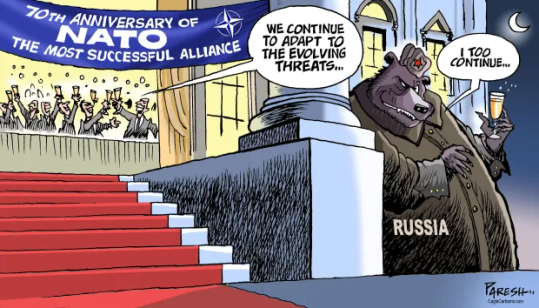
LETTERS FROM AN AMERICAN
January 11, 2024
HEATHER COX RICHARDSON
JAN 12, 2024
“Today, at my direction,” President Joe Biden said this evening, “U.S. military forces—together with the United Kingdom and with support from Australia, Bahrain, Canada, and the Netherlands—successfully conducted strikes against a number of targets in Yemen used by Houthi rebels to endanger freedom of navigation in one of the world’s most vital waterways.”
The strikes came after the Iran-backed Houthi militia launched 27 attacks on vessels in the Red Sea, including merchant shipping vessels that carry about 12% of the world’s oil, 8% of its grain, and 8% of liquefied natural gas, as well as other commodities.
While the Houthis claim their attacks are designed to support the Palestinians in Gaza, they are also apparently angling to continue and spread the Hamas-Israel war into a wider conflict. Hamas, the Houthis, and Hezbollah, all nonstate actors backed by Iran, would like very much to extend and enlarge the war to enhance their own power and win adherents to their ideologies.
The Arab states do not want the conflict to spread. Neither does the U.S. government, and Biden and Secretary of State Antony Blinken have worked hard to make sure it doesn’t, sending two carrier groups to the region, for example, to deter enthusiasm for such an extension.
On October 19, shortly after the October 7 Hamas attack on Israel, Houthis launched cruise missiles and drones designed by Iran at Israel, but when the USS Carney and Saudi Arabia shot the weapons down, they turned to attacking shipping. Fifty or so ships use the Red Sea waterway every day.
On November 19, Houthis seized a Japanese-registered vessel, the Galaxy Leader, along with its 25-member international crew, prompting the United Nations Security Council to condemn “in the strongest terms” the “recent Houthi attacks” and “demanded that all such attacks and action cease immediately.” The Security Council “underlined the importance of…international law.”
On December 3, Houthis struck another three ships.
On December 19, the U.S., the European Union, the North Atlantic Treaty Organization, and a group representing 44 allies and partner nations condemned the Houthi attacks, noting that such attacks threatened international commerce, endangering supply chains and affecting the global economy. Also on December 19, the U.S. and partners announced a naval protection group for maritime shipping in the waterway, dubbed Operation Prosperity Guardian.
When the attacks continued, the governments of the U.S., Australia, Bahrain, Belgium, Canada, Denmark, Germany, Italy, Japan, Netherlands, New Zealand, Republic of Korea, Singapore, and the United Kingdom warned the Houthis on January 3, 2024, that their attacks were “illegal, unacceptable, and profoundly destabilizing,” delaying the delivery of goods and “jeopardizing the movement of critical food, fuel, and humanitarian assistance throughout the world.” They called for an end to the attacks and the release of the detained vessels and crew members, and they warned that the Houthis would bear responsibility for the “consequences” if the attacks continued.
“We remain committed to the international rules-based order and are determined to hold malign actors accountable for unlawful seizures and attacks,” the statement said.
Administration officials told the press the U.S. would strike the Houthis militarily if the attacks didn’t stop, although Biden has not wanted to destabilize Yemen further than it already is after a decade of civil war. “The president has made clear the U.S. does not seek conflict with any nation or actor in the Middle East,” John Kirby, spokesperson for the White House National Security Council, said. “But neither will we shrink from the task of defending ourselves, our interests, our partners or the free flow of international commerce.” An administration official said: “I would not anticipate another warning.”
On Tuesday, January 9, the Houthis launched 21 drones and missiles in the most significant attack yet—one that directly targeted U.S. ships—and on January 10 the U.N. Security Council passed UNSCR 2722, a resolution condemning the attacks “in the strongest terms.” Eleven members voted in favor and none opposed it. Four countries—China, Russia, Algeria, and Mozambique—abstained, but neither China nor Russia, both of which have veto power, would veto the resolution.
Today the U.S. and the U.K., with coalition support, responded. Military strikes came from the air, ocean, and underwater, according to a defense official, and they hit weapons storage areas and sites from which the Houthis have been launching drones and cruise missiles.
The governments of Australia, Bahrain, Canada, Denmark, Germany, Netherlands, New Zealand, Republic of Korea, the U.K, and the U.S. announced the “precision strikes,” saying they were “in accordance with the inherent right of individual and collective self-defense, consistent with the UN Charter” and “were intended to disrupt and degrade the capabilities the Houthis use to threaten global trade and the lives of international mariners in one of the world’s most critical waterways.”
“Our aim remains to de-escalate tensions and restore stability in the Red Sea,” the statement read, “but let our message be clear: we will not hesitate to defend lives and protect the free flow of commerce in one of the world’s most critical waterways in the face of continued threats.” Biden’s statement sounded much the same but added: “I will not hesitate to direct further measures to protect our people and the free flow of international commerce as necessary.”
As the January 3 statement from the governments of the U.S., Australia, Bahrain, Belgium, Canada, Denmark, Germany, Italy, Japan, Netherlands, New Zealand, Republic of Korea, Singapore, and the U.K. made clear, one of the key things at stake in standing against the Houthi attacks is the international rules-based order, that is, the system of international laws and organizations developed after World War II to prevent global conflicts by providing forums to resolve differences peacefully. A key element of this international system of agreements is freedom of the seas.
Also central to that rules-based international order is partnerships and allies. Two days ago, one of Europe’s leading politicians revealed that in 2020, former president Trump told European Commission president Ursula von der Leyen: “You need to understand that if Europe is under attack, we will never come to help you and to support you.” According to the politician, Trump added that “NATO is dead, and we will leave, we will quit NATO,” a threat he has made elsewhere, too.
In contrast, as soon as he took office, President Biden set out to support and extend U.S. alliances and partnerships. While that principle shows in the international support for today’s strike on the Houthis, it has also been central in the administration’s response to Russia’s 2022 invasion of Ukraine, managing migration, supporting African development, building the Indo-Pacific, and reacting to the Middle East crisis in general.
Today, Secretary of State Blinken finished a week-long trip to Türkiye, Greece, Jordan, Qatar, the United Arab Emirates, Saudi Arabia, Israel, the West Bank, Bahrain, and Egypt, where he met with leaders and reaffirmed “the U.S. commitment to working with partners to set the conditions necessary for peace in the Middle East, which includes comprehensive, tangible steps toward the realization of a future Palestinian state alongside the State of Israel, with both living in peace and security.”
LETTERS FROM AN AMERICAN
HEATHER COX RICHARDSON
5 notes
·
View notes
Text
The Group of Seven (G-7) leaders are expected to ratchet up economic and political pressure on Russia when they convene at a summit in Italy later this week, with plans to roll out new loans to Ukraine from frozen Russian assets. They also plan to condemn Moscow’s growing ties to North Korea as well as China’s indirect support of the Russian war machine.
The plans for the upcoming summit, described by current and former officials familiar with draft G-7 communiques circulating among diplomats, are being pushed by embattled Western leaders eager to lock in foreign-policy wins in the face of major election hurdles at home. A G-7 leaders’ summit in 2025 could be drastically different and a lot more fractured depending on how elections go in the United States, United Kingdom, and now France—particularly if former U.S. President Donald Trump beats incumbent President Joe Biden in the U.S. elections in November.
“This is the last time this group will meet in this configuration with these leaders. I think that’s pretty clear,” said Josh Lipsky, a former advisor at the International Monetary Fund and now senior director at the Atlantic Council’s GeoEconomics Center. “It all conveys a sense of urgency and the stakes around this G-7.”
The G-7 summit also comes against the backdrop of Israel’s war against Hamas in Gaza as well as strategic competition between the West and its rivals in Russia and China to curry favor and influence in the so-called global south. Italian Prime Minister Giorgia Meloni has invited the leaders of at least a dozen non-G-7 countries to the upcoming summit, including Algeria, Argentina, Brazil, India, Kenya, Mauritania, Saudi Arabia, South Africa, and the United Arab Emirates.
The Biden administration’s top priority for the upcoming summit, which Biden himself is set to attend, is finalizing an agreement to provide around $50 billion in new loans to Ukraine using profits from Russian assets that have been frozen in the Western-dominated international financial system. The proposal has received widespread support in theory among countries opposed to Russia’s full-scale invasion of Ukraine, but it still faces a thicket of complex legal and financial hurdles.
Western countries froze around $280 billion in Russian financial assets following Russia’s invasion of Ukraine in 2022, the bulk of which is parked in Belgium, France, and Germany. EU officials have resisted efforts to seize the assets directly, fearing the precedent such a move would set for international markets, but they opened the door to allocating interest generated by these assets to Ukraine. The Biden administration’s plan calls for G-7 countries to issue Ukraine a $50 billion loan, seen as a critical lifeline for the country’s battered wartime economy, which would be paid back over the years by the interest from the frozen Russian assets. Those assets could generate around $2.7 billion to $3.7 billion a year in interest. Biden administration officials are still working to hash out the final details of the plan ahead of the summit.
Alongside this, the G-7 countries—the United States, Canada, France, Germany, Italy, Japan, and the United Kingdom—are also expected to issue new statements condemning Russia’s deepening military ties with North Korea and send new warnings to Chinese banks to stop helping Moscow evade Western sanctions lest they face new sanctions themselves, the current and former officials said. The United States has so far avoided sanctioning major Chinese financial institutions, possibly fearing the impact on global financial markets, but Washington could choose to target smaller Chinese banks helping Russia skirt Western sanctions as a calculated response and opening warning shot.
“Our concern is that China is increasingly the factory of the Russian war machine,” Daleep Singh, the White House deputy national security advisor for international economics, said during an event at the Center for a New American Security. “You can call it the ‘arsenal of autocracy’ when you consider [that] Russia’s military ambitions threaten obviously the existence of Ukraine, but [also] increasingly European security, NATO, and trans-Atlantic security.”
The Biden administration’s push for major deliverables at the upcoming G-7 summit fits into a wider strategy the administration has taken to advance its foreign-policy agenda in more informal and ad hoc groupings of partners and allies as traditional multilateral institutions—such as the United Nations—are stuck in diplomatic gridlock. The administration has advanced its Indo-Pacific strategy through the Quad—a new partnership among Australia, India, Japan, and the United States—and security partnerships through the AUKUS arrangement with Australia and the United Kingdom.
While the Biden administration hopes to focus the G-7 summit on rallying more international support for Ukraine, it is also grappling with the ongoing crisis in the Middle East centered on Israel’s war against Hamas. Ongoing U.S. support for Israel in the war as the civilian death toll in Gaza mounts has opened Washington up to widespread criticism and accusations of hypocrisy, particularly from countries in the global south.
Countries including Colombia, Mexico, and Nicaragua have filed to join South Africa’s genocide case against Israel at the International Court of Justice over vehement opposition from Israel and the United States. Colombia, Bolivia, and Belize have severed diplomatic ties with Israel, and Brazil has withdrawn its ambassador. Russian state propaganda outlets have seized on the narrative of Western double standards about civilian casualties in Ukraine versus Gaza, and many analysts assess that the conflict in Gaza is aiding the Kremlin’s messaging to the global south on Western hypocrisy.
“The Ukraine war awakened us in the West to the fact that there’s work to do in the global south, but at least then we were on the side of the global majority,” said Nathalie Tocci, director of the Istituto Affari Internazionali Italian think tank and former special advisor to the EU’s foreign-policy chief.
“Now with Israel-Gaza, we just basically are in a shrinking minority,” she added. “We’re in a far, far more complicated spot than we were a year ago vis-à-vis the global south … and there’s now this total lack of credibility that the West has to deal with.”
5 notes
·
View notes
Text
Exploring Nursing Opportunities Abroad: Top Countries for Indian Nurses
Nursing is one of the most in-demand jobs inside and outside India. A profession that is in most demand in GCC countries for Indians is the nursing job. For Indian nurses, who are looking to broaden their horizons, many countries are waiting with promising career opportunities. If you are a skilled nurse and have multilingual capabilities then wide opportunities will be there. The overseas opportunities will give you high pay as well as a high-standard working environment. The respect for nurses outside India is much higher than inside India. Nurses are being recruited through top nursing consultancy in Kerala and here is a list of the top countries that offer promising careers.
Five top countries that offer promising nursing career
United Arab Emirates: Dubai which is an opulent city right due to cultural and development richness hires nurses from India. A large part of nurses who work in Dubai are Indian and they a decent pay but not much higher than European and American countries. But the most attractive feature of Dubai is that the nurses can take their entire income to their homeland since there are no taxes. In Dubai, there are many world-class hospitals, medical centers, and clinics that offer good employment prospects for Indian and other nationalities.
Saudi Arabia: In Saudi Arabia, there are a plethora of job opportunities for nurses in both the private and Government sectors. They offer good pay, accommodation facilities and also travel allowances. Saudi Arabia is one of the largest nations in GCC countries and also the pilgrimage place for Muslims, the demand for medical facilities is very high. The demand for trained professionals especially from India is of high demand in Saudi. However, finding the right opportunity is a bit challenging since there is a high scam in the field of recruitment.
Canada: Canada is a country that offers a healthcare system with the highest standard. This country is facing staff shortages and is now actively recruiting nurses worldwide. The high-quality life and the welcoming stances towards immigrants make Canada an excellent choice for nurses. The medical facilities and education are completely free for immigrants.
Australia: Australia's flourishing healthcare industry and stunning landscapes attract nurses worldwide. With modern facilities and advanced technology, nurses can work efficiently. During leisure time, they can explore the country's picturesque natural environment. Competitive salaries and excellent benefits make it a lucrative career option. To work as a nurse in Australia, one must register with the AHPRA (Australian Health Practitioner Regulation Agency) and pass English language proficiency tests.
United States of America (USA): The USA boasts a robust healthcare system with a significant demand for skilled nurses across various specialties. Indian nurses aspiring to work in the USA can pursue opportunities through programs like the H-1B visa for skilled workers or the EB-3 visa for professionals with tertiary education. Opportunities exist in hospitals, clinics, long-term care facilities, and community health settings throughout the country.
United Kingdom (UK): With its National Health Service (NHS), the UK offers extensive opportunities for Indian nurses to work in both public and private healthcare sectors. The UK's Nursing and Midwifery Council (NMC) oversees the registration process for international nurses, which includes passing the Occupational English Test (OET) or International English Language Testing System (IELTS) and meeting other requirements. Work settings range from hospitals and nursing homes to community healthcare centers.
Conclusion
If you are planning for an overseas nursing job, first research the rules and regulations for immigrants. Based on it decide which country is most suitable for you. There will be medical tests, mandatory examinations, and other verifications for each country. It is better to connect with any nursing consultancy in Kerala before you plan to move, they will guide you through the process and also provide you with data regarding the recruitment.
3 notes
·
View notes
Text
Hamas is not the Palestinian people. Hamas is a terrorist organization that came to power in Gaza in 2006.
For the Christian
youtube
Johnnie Moore's International religious liberty bio from Wikipedia:
China:
Moore condemned China’s treatment of Muslims in 2017 and wrote an open letter to the Chinese premier alongside of Rabbi Abraham Cooper from the Simon Wiesenthal Center.[8] In May 2021, the People's Republic of China issued retaliatory sanctions against Moore that banned him from entering the territory that it controls the United States issued sanctions against a Chinese official for the official's involvement in the detention of Falun Gong pratcitioners.[9][10][11]
Middle East:
In 2017 Moore joined the Los Angeles Museum of Tolerance Press Conference calling for tolerance and the end of bigotry.[12][13] Moore played a key role in the release of the historic Bahrain Declaration calling for rights for religious minorities in the Middle East. Days after the move of the Jerusalem embassy more led a multi-faith peace delegation from the Kingdom of Bahrain on a pilgrimage in Jerusalem.[13] Moore’s Bahraini trip to Jerusalem prompted his being listed on the electronic intifada for allegedly forging and alliance between Bahrain and Israel in defiance of the Arab boycotts of Israel.[14][15]
Moore met and raised awareness of human rights issues with the Saudi CP within weeks of the death of Khashoggi.[16] He also visited the country on 9/11 and is an advocate of the Crown Prince’s Vision 2030 reform agenda.[17] Moore participated in the announcement of the first ever Chief Rabbi for the United Arab Emirates[18] and held meetings with heads of state throughout the Islamic world with the Crown Prince of the United Arab Emirates in 2018[19] as well as advocating for persecuted Hindus in India.[20] He now serves on the ADL Task Force for Protecting Minority Groups in the Middle East.[21]
Moore praised the Kingdom of Jordan for its interfaith efforts[22] as well as praising the President of Azerbijain as a model of peaceful coexistence.[23] He has also met with Israeli Prime Minister Benjamin Netanyahu and various Palestinian leaders,[24] the President of Azerbaijan,[25][26] and twice with the Crown Prince of the Kingdom of Saudi Arabia in 2019 and 2018[27][28] and he has met with the World Council of Churches.[29]
Moore referred to the ISIS threat against Christians in Iraq and Syria as a “once in a 1000 year threat to Christianity.”[30] He chartered a private jet and organized the evacuation and resettlement of ISIS victims from Northern Iraq to Slovakia over Christmas in 2015, a first in a series of efforts that eventually resettled over 10,000 Christian and Yazidi refugees displaced by ISIS.[31][32] On September 11, 2019 he joined forces with Muhammad Alissa of the Muslim World League to issue a joint statement calling for cooperation between evangelicals like Moore and Muslims with a focus on protecting Christian holy sites.[33] Moore is a critic of Iran and has called for the Iranian people to take back their religion from their supreme leader.[34][35] He praised Pakistan’s prime minister for the arrest of a leading terrorist[20] and in 2019 his advocacy was credited for the release of an 82-year-old Muslim prisoner of conscience in Pakistan, Abdul Shakoor.[36][37]
Moore was among an evangelical delegation who met with Egyptian government officials[38][39] and was the guest of Egypt’s president for the grand opening of the Middle East’s largest cathedral.[40]
North Korea:
Moore was involved in bringing together liberal, moderate and conservative evangelicals in a joint call for prayer for peace in North Korea.
Terrorism Primer
youtube

Peace Process Primer
youtube
youtube
#terrorism#hamas#israel#heartbreaking 💔#evil#pray for the peace of jerusalem#open borders#religious liberty#soros#Youtube
6 notes
·
View notes
Text
...
President Joe Biden is therefore caught between the powerful Israel Lobby and the opinion of American voters and of the world community. Given the power of the Israel lobby, and the sums it expends in campaign contributions, Biden is trying to have it both ways: supporting Israel but not endorsing Israel’s extremism. Biden and Secretary of State Antony Blinken hope to entice the Arab countries into yet another open-ended peace process with the two-state solution as the distant goal that is never reached. Israeli hardliners would of course block every step of the way. Biden knows all of this but wants the fig leaf of a peace process. Biden also hoped until recently that Saudi Arabia could be lured into normalizing relations with Israel in return for F-35 fighter jets, access to nuclear technology, and a vague commitment to an eventual two-state solution... someday, somehow.
The Saudis will have none of it. They made this clear in a declaration on February 6, stating: The Kingdom calls for the lifting of the siege on the people in Gaza; the evacuation of civilian casualties; the commitment to international laws and norms and international humanitarian law, and for moving the peace process forward in accordance with the resolutions of the Security Council and the United Nations, and the Arab Peace Initiative, which aims to find a just and comprehensive solution and establish an independent Palestinian state based on the 1967 borders, with East Jerusalem as capital.
Domestically, Biden confronts AIPAC (the innocuously named American Israel Public Affairs Committee), the lead organization of the Israel lobby. AIPAC’s long-running success is to turn millions of dollars of campaign contributions into billions of dollars of U.S. aid to Israel, an amazingly high return. Currently, AIPAC aims to turn around $100 million of campaign funding for the November election into a $16 billion supplemental aid package for Israel.
So far, Biden is going along with AIPAC, even as he loses younger voters.
...
This morning, the U.S. used its veto power to kill the Algerian draft resolution in the UN Security Council calling for an immediate cease-fire, with U.S. Ambassador Linda Thomas-Greenfield calling the effort to pass the measure "wishful" and "irresponsible." Biden has put forward a weak alternative, calling for a ceasefire “as soon as practicable,” whatever that means. In practice, it would also surely mean that Israel would simply declare a cease-fire to be “impracticable.”
2 notes
·
View notes
Text
The Saudis had infuriated the US last year by siding with Russia to cut oil production in a move that Biden feared would spike domestic inflation.
Biden told Saudi Arabia there would be "consequences" for their decision, echoing campaign trail rhetoric in which he had pledged to make the crown prince a "pariah" over the assassination of dissident Jamal al-Khashoggi.
But Crown Prince Mohammed's decision to draw closer to China, the US' arch global rival, has shifted attitudes in Washington — and it looks like Biden has made a u-turn.
The US has replaced its threats with lucrative contracts for the crown prince as part of a high stakes power game being waged over dominance of the region.
Biden last weekend dispatched his national security advisor, Jake Sullivan, to Saudi Arabia, for discussions with Saudi officials. He was the most prominent US official to visit the kingdom since Biden himself made the trip last summer. [...]
"For the Biden administration, challenging China's rising influence in the Middle East and other parts of the world is a high priority," Giorgio Cafiero, CEO of Washington DC based consultancy Gulf State Analytics told Insider.
In an indication of the rapidly-shifting power dynamics in the region, Sullivan offered the Saudis lucrative infrastructure investment to improve links between railways and ports in Gulf states and India, one of the world's fastest growing economies and a geopolitical rival of China, reports say, [...]
According to The Wall Street Journal, the crown prince believes that by playing rival superpowers against each other, he'll be able to secure valuable concessions from the US in areas such as nuclear technology.
10 May 23
The current reality supports a framework for the ongoing, unprecedented alignment between India, Israel, and the Sunni Arab states (UAE, Saudi Arabia, and Egypt) to balance the rising Eurasian powers of the region and prepare a US shift towards the Indo-Pacific. Two major obstacles were the Arab-Israeli conflict and the India-Pakistan conflict. As the world is drifting towards a multipolar system, pragmatism is prevailing and legacy relationships with no strategic purpose are running out of time — paving the way for the Abraham Accords in 2020 and more interest-based relations between India and Saudi Arabia, UAE, and Egypt. [...]
Saudi Arabia and India established a Strategic Partnership Council in 2019 for cooperation in defense, security, counterterrorism, energy security, and renewable energy. Both sides aim to enhance overall defense cooperation by expanding military-to-military engagements, such as joint exercises, expert exchanges, and industry cooperation.
The current robust relationship between Saudi Arabia and India signals a departure from Riyadh's longstanding strategy of leaning towards Pakistan in South Asia. This shift can be attributed to the pragmatic approaches adopted by the two largest economies in the region and their increasing global strategic and economic importance.
12 May 23
16 notes
·
View notes